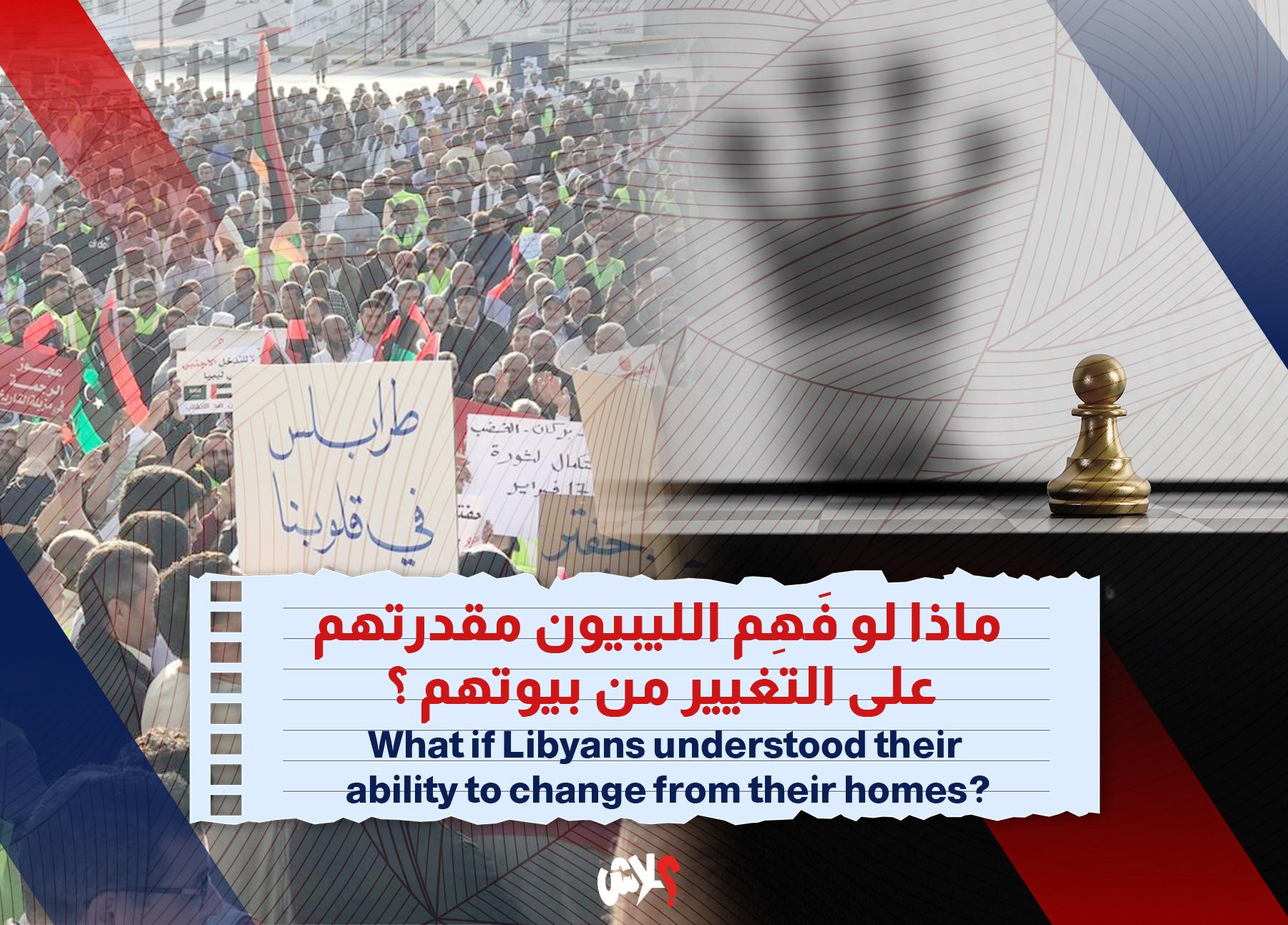What if Libyans understood their power to create change from their homes?
In 2016, the well-known Libyan politician, former dissident, and political prisoner during the Gaddafi era, and the former First Deputy Speaker of the General National Congress, Dr. Jumaa Ateega, faced a severe campaign of bullying and defamation. This occurred after he proposed that the Libyan people engage in a form of peaceful protest against the ruling authority. Ateega's suggested protest involved people banging on pots at a predetermined time to express popular discontent with the ruling class and to convey the message that the people desire change.
Ateega drew inspiration for this protest idea from events in Argentina in 2001, where the concept was first implemented. It was part of widespread popular protests in the country at that time, where people used pot-banging as a method to express their anger and dissatisfaction with the dire economic conditions and government corruption. This idea is considered a tool for peaceful protest that demands political or economic change. Peaceful protest against authority is an effective tool for the people to express their discontent and demand change without resorting to violence. This form of peaceful expression is manifested in sit-ins, demonstrations, strikes, and other peaceful campaigns, such as boycotts, which aim to achieve positive changes in politics and society.
Peaceful protest has proven, from Gandhi's civil disobedience movement against British colonialism to the American civil rights movement led by Martin Luther King Jr. and John Lewis, to the Arab Spring revolutions, that it can be an effective tool for achieving positive change and toppling oppressive regimes without causing loss of life or destruction. These peaceful movements embody the people's will to achieve justice and freedom, reflecting the power of persistence and solidarity in the face of injustice and tyranny.
A current example not far from this idea is the ongoing social media calls in our country to boycott certain goods due to high prices. Recently, there have been calls to boycott eggs and chicken, with campaign organizers urging people to refrain from buying these products until prices drop. They hint at expanding the campaign to other goods if they succeed in reducing the prices of eggs and chicken. Some pages supporting this campaign claim that prices have indeed seen a noticeable decline in recent days and are no longer as high as they were at the campaign's onset.
In recent years, there have been several calls to boycott certain goods due to high prices. However, the popular momentum and response demonstrated by commercial markets and others in handling this campaign are unprecedented, indicating a potential spread of public awareness that peaceful protest mechanisms can effect change. Today, they are succeeding in changing prices and may later succeed in changing decision-makers.
How did the authorities react?
The government in Tripoli did not comment on the campaign, neither approving nor rejecting it, nor did it take any actual steps to control the prices of the boycotted goods or others. On the other hand, the eastern government rode the wave of protests and, adopting a competitive policy, tried to deal a blow to its rival in Tripoli by appearing as the government supportive of its people. It imported subsidized eggs to be sold at prices lower than local eggs.
This acrobatic move by Hamad's government led it to do something perhaps unprecedented in the world of politics and economics. Governments usually prevent the import of certain goods or impose restrictions on them to support local products, not to import a product that undercuts local ones that are supposed to be supported. Hamad and his government should have, if their intentions were sincere, imposed reasonable prices for these and other goods, obliging traders to comply and punishing violators, or supported the local product by buying it from farmers and producers at a fair price and selling it to citizens at an affordable price. The idea of importing foreign eggs, specifically Turkish eggs, to replace the national product is nothing but an exaggeration of the government's nationalistic appearance and a means to ride the wave of people's protests and use them to their advantage in their rivalry with Dbeibah's government.
Boycott everyone!
If the campaign succeeds – and we hope it does – it should not stop at eggs and chicken, but continue to boycott other goods, so that the citizen realizes that they actually possess weapons enabling them to respond to those who claim to hold power – even if those weapons are peaceful. We should boycott all goods we can live without, and then boycott military leaders, governments, parties, ministers, politicians, officials, presidential candidates, and others. Boycott their gatherings, speeches, visits, sermons, words, and empty promises as empty as your pots. Do not bang on the pots, for their noise will disturb us and will not reach their lofty palaces and high towers. Instead, turn their gatherings, marches, events, and celebrations into empty squares and vacant chairs. Do not cheer for them or follow them; rather, boycott them, for they are not more precious to you than eggs and chicken.

